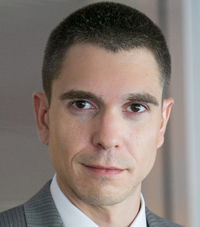The Justice Department announced this week that it will seek the death penalty in the trial against Boston Marathon bomber Dzhokhar Tsarnaev. While he enjoys his American right to a fair trial, it nevertheless seems clear that the verdict will be guilty and the punishment will be death. For some, this may seem appropriate, but in exacting lethal retribution for Tsarnaev’s despicable crimes, we will lose a big opportunity to better understand radicalization and terrorism.
Full transparency – I do not support capital punishment. There is too much room for error in our criminal justice system, and in the history of our nation, innocent people have been executed. To my mind, any risk of killing an innocent person is too much risk. When it comes to Tsarnaev, however, there is no question of his guilt. There are pictures, video and a host of other evidence that prove Dzhokhar and his brother Tamerlan committed the heinous terror attack in Boston, as well as engaged in vicious violence in the days that followed. The brothers killed four people and horribly injured more than 260 others. Tsarnaev is a terrorist and a murder.
Since his arrest, Tsarnaev has shown no remorse. He has held fast to his violent ideological beliefs. And yet, even if Tsarnaev fell to his knees and begged forgiveness, that would not counter the DOJs justification for seeking the death penalty. Contrite or not, Tsarnaev will be executed for his past actions, not for his current worldview. When he is killed, the world will suffer one less hateful person, but the security community will also have one less place to turn to study and understand the terrorist mind.
Tsarnaev is a young man, and if, after the guilty verdict, DOJ elected to throw him into the darkest corner of a federal prison, we would have a captive homegrown extremist to question and analyze (for decades), potentially yielding critical insights that could be used to prevent future instances of domestic terrorism. (There is an added benefit that Tsarnaev will suffer in prison for a long, long time. There are worse punishments than death, and a lifetime of incarceration and isolation sounds pretty damn bad.)
Nothing we do will reverse the attack. The dead can be mourned but not returned; the injured can heal but some wounds never will (such as for the dozens of people who lost limbs). Given that, we are left with two choices. We can either kill Tsarnaev in an attempt to soothe our national grief and anger, or we can use Tsarnaev to possibly uncover new ways of preventing terrorism and radicalization. To be sure, Tsarnaev does not deserve his life, but that does not mean we should end it. Instead, let’s learn as much as we can from his twisted mind and beliefs. It might just help us foil a future attack.


